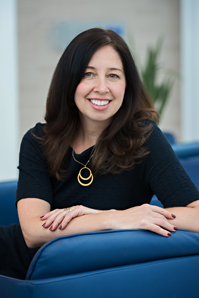Laura Nimmon, PhD
Scientist
Dr. Laura Nimmon is a Scientist at the Centre for Health Education Scholarship and an Associate Professor in the Department of Occupational Science and Occupational Therapy, Faculty of Medicine, University of British Columbia. Dr. Nimmon is an Associate Editor for Perspectives on Medical Education.
Research Interests
There is an illusion of independence in health professions education. However, patients and healthcare providers are each connected to a complex (sometimes overlapping) set of social networks of family, friends, colleagues, and systems that support and shape the delivery and experience of healthcare. Dr. Nimmon’s primary research interest is in making the influence of social connections visible within the educational and clinical practices of the health professions.
Using qualitative social network analysis and critical theory, Dr. Nimmon’s research explores three inter-related questions: (1) How do formal (instructors, supervisors) and informal (peers, friends, family) social networks influence learning and well-being across the continuum of health professions education and practice? (2) How does relational coordination shape teamwork in palliative and chronic disease care settings?, and (3) How do practitioner and patient social networks interface to shape the meaning and experience of healthcare?
Dr. Nimmon’s research expands conceptualizations of technical expertise to encompass relational expertise. This recharacterization of medical expertise enables health practitioners to learn more effectively and respond more sensitively when interacting with patients and colleagues. Her work also widens the implicit drive towards the goal of independent practitioners. Instead, the goal may be individuals deeply embedded in social structures who have the skills to take advantage of their interdependence.
Dr. Nimmon’s research is funded by tri-council funding agencies, hospital foundations, and professional regulatory bodies.
Broadly, Dr. Nimmon also brings new social theories to bear on pressing questions in the field. She translates and applies these theories for others to see anew and enlarge their own scholarly approaches to learning and practice.
At CHES, Dr. Nimmon supervises health professions educators and graduate students on research that illuminates the social aspects of learning. This body of research spans topics such as psychological safety; faculty development; empathy retention; disability and inclusion; resiliency; IMG selection; and remote simulation.
Awards
- CAME-ACEM Champion Award for Advocacy, Role Modeling and Mentorship of Early Career Researchers (Canadian Association for Medical Education) (2020)
- Young Researcher Award (Society for Academic Continuing Medical Education) (2017)
- Arthritis Society Young Investigator Salary Award (2015-2018)
Publication Highlights
Nimmon, L., Atherley, A. (In press). Qualitative ego networks in health professions education: Capturing the self in relation to other. Medical Education. (State of the Science Issue).
Atherley, A., Nimmon, L., Teunissen, P., Dolmans, D., Hegazi, I., Hu, W. (2021). Students social networks are diverse, dynamic, and deliberate when transitioning to clinical training. Medical Education, 55(3), 376-386.
Dalinghaus, K., Regehr, G., Nimmon, L. (2021). Intersections of power: Video-conferenced debriefing of a rural interprofessional simulation team by an urban interprofessional debriefing team. Perspectives on Medical Education, 1-7.
Buckley, B., Nimmon, L. (2020). Learning in faculty development: The role of social networks. Academic Medicine, 95(11S), S20-S27.
Nimmon, L. (2020). Expanding medical expertise: Role of healer. Medical Education. 54(5), 380-381.
Paradis, E., Nimmon, L., Whitehead, C. Wondimagegn, D. (2020). Critical theory: Broadening our thinking to explore the structural factors at play in health professions education. Academic Medicine, 95 (6), 842-845.
Tsuei, S., Lee, D., Ho, C., Regehr, G., Nimmon, L. (2019). Exploring the construct of psychological safety in medical education. Academic Medicine. 94(11S), S28-S35.
